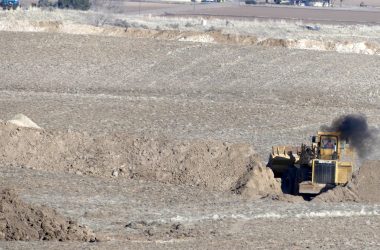ONTARIO — A local nonprofit focused on expanding career and technical education for students to enter the workforce met with the state Bureau of Labor and Industries earlier this month to get the minimum age requirement for electricians and plumber apprenticeship programs changed from 18 to 16.
In addition to the age requirement, Poverty to Prosperity noted in a Jan. 10 letter to the state agency that, compared to Idaho, Oregon regulations are too “restrictive” regarding the ratio of journeyman electricians to apprentices.
Oregon requires three journeyman electricians to two apprentices. Meanwhile, Idaho allows a ratio of one journeyman to four apprentices. In plumbing, Idaho allows a journeyman plumber to have an unlimited number of apprentices. In contrast, Oregon has a ratio of one journeyman for one plumber for the first two apprentices and one for every three after that.
Poverty to Prosperity said that state policies impair Malheur County’s efforts at “inclusion, diversity and equity.”
Riley Hill, a local contractor and former mayor of Ontario, pointed out in an interview that 63% of Malheur County’s population is Hispanic. However, he said, there are few if any Hispanic electricians or plumbers in the area.
The latest U.S. Census Bureau estimate puts Malheur County’s Hispanic population at 35% of the county’s 31,693 residents.
Lisa Ransom, director of BOLI’s Apprenticeship and Training Division, said in an interview that the state’s regulations are in line with federal child labor laws and that she doesn’t know how the age requirement could be changed.
Additionally, Ransom noted that plumbing and electricians programs are one of a list of nearly 20 hazardous fields that set the minimum age requirements at 18 for certain aspects of training s. Mainly, she said, these cover such life-threatening tasks as working with live electrical wires.
Also, she said, a minor is allowed to work more more than 20 hours a week during the school year.
Ransom said that the state requires businesses in all industries to post their recruitment efforts in their communities publicly. Additionally, she said, the companies within these industries must provide proof of their recruitment efforts.
Ransom said there is continuous oversight within the apprenticeship and training programs that BOLI offers that is designed to ensure people from underserved populations are recruited.
Additionally, she said BOLI would work with Poverty to Prosperity to ensure “robust” efforts to recruit and retain workers in various industries.
For instance, she said an eastern Oregon representative from BOLI is working with Poverty to Prosperity to identify occupations that would allow a lower age requirement.
Hill said he understands that it would take time to get the regulations changed.
Meanwhile, Ken Martinez, Ontario High School principal, said that when students go into apprenticeships such as electrician or plumber, they are close to graduating high school. In turn, Marinez said, this limits a student’s time to explore those trades.
That lack of homegrown talent, Martinez said, is what he thinks is at the heart of Poverty to Prosperity’s efforts.
HOW TO SUBSCRIBE – The Malheur Enterprise delivers quality local journalism – fair and accurate. You can read it any hour, any day with a digital subscription. Read it on your phone, your Tablet, your home computer. Click subscribe – $7.50 a month.




